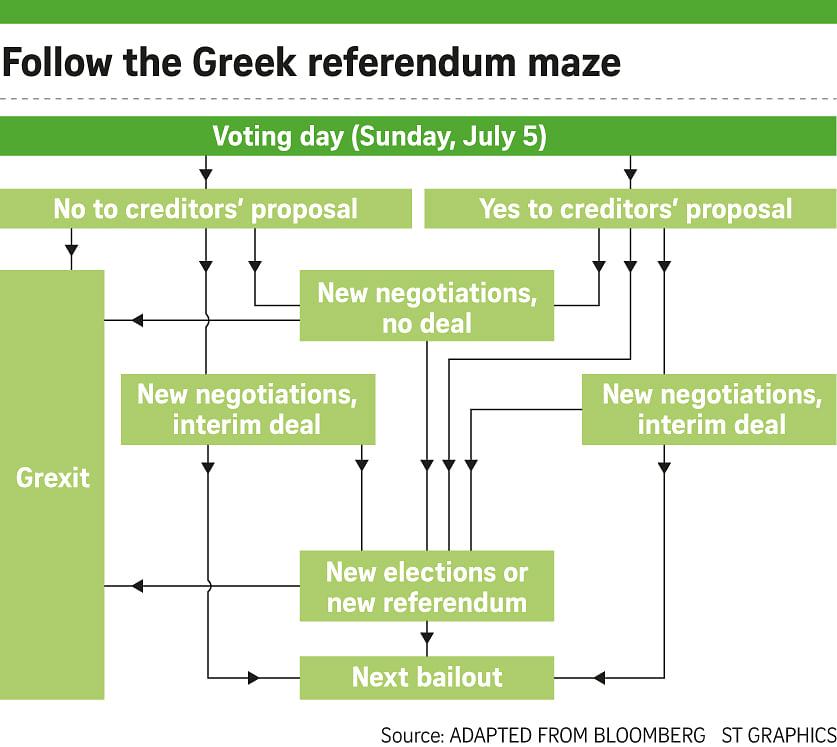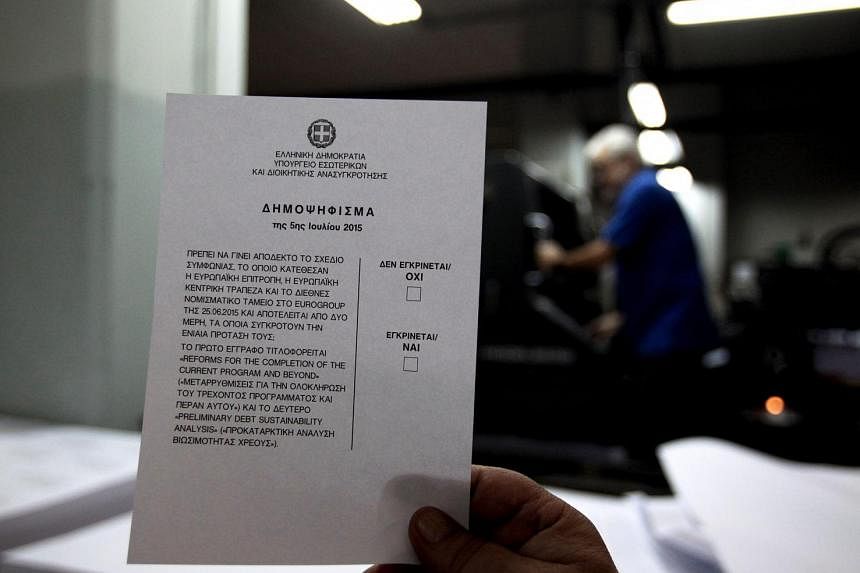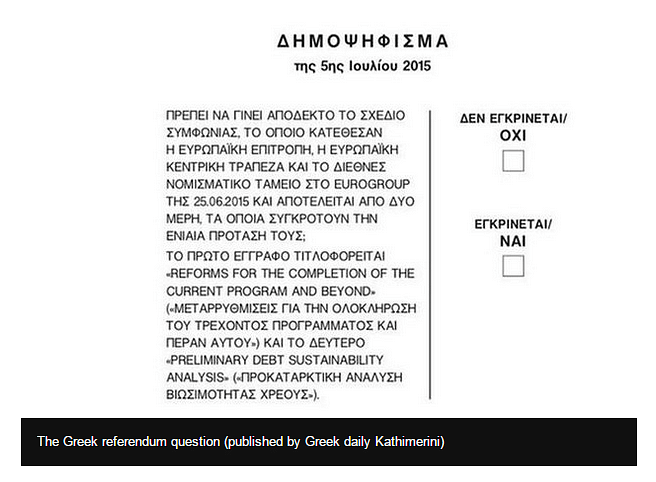As the New York Times puts it, imagine if the fate of your country hangs on a yes-or-no question. The question is drafted in cryptic, bureaucratic language and asks you to decide on a bailout plan that has already expired. Your government is begging you to vote 'No', while all your neighbours in Europe are pushing you to say "Yes".
And no matter what you do, there's no happy ending.
Welcome to a Greek tragicomedy, where not even the main actors know how it will end.
A defiant Prime Minister Alexis Tsipras is going ahead with the controversial referendum on July 5, asking Greek voters to decide on the spending cuts that Europe had demanded in return for extending a bailout programme. On June 30, Greece defaulted on a debt repayment to the International Monetary Fund as the bailout expired in a standoff with its creditors that has frozen Greece's cash-strapped banks and put its suffering economy in limbo.
So, will the referendum help Greece? Here are three reasons it might not:
1. It's Greek to the Greeks
Many Greeks have no clue what they are voting on - or what will happen if the vote goes either way.
The referendum question itself is technical and difficult to understand. Translated, it says:
"Should the proposed agreement be accepted, which was submitted by the European Commission, the European Central Bank and the International Monetary Fund in the Eurogroup of 25.06.2015 and consists of two parts, which constitute their unified proposal?
"The first document is entitled 'Reforms for the Completion of the Current Program and Beyond' and the second 'Preliminary Debt Sustainability Analysis'."
Beside the question are two boxes: "Not approved/No; Approved/Yes". "No one is really telling us what it means," said Erika Papamichalopoulou, 27, a resident of Athens, told NYT. "No one is saying what will happen to us if we say yes, or what will happen to us if we say no."
2. Leaders disagree on what it means
Mr Tsipras insists Sunday's referendum is a vote for or against austerity. But other eurozone leaders are insisting it's a vote on whether Greece wants to stay in the euro.
To add to the confusion, Mr Tsipras, who called for the referendum on June 28, has veered between defiant confrontation with the country's creditors and conciliatory outreach. Even as he signaled on July 1 that he would accept many of the demands made by the creditors, he pressed ahead with the referendum and again urged Greeks to reject the proposal containing those demands.
Ironically, this seems to have had the effect of making his opponents suddenly warm up to his referendum move. Mr Tsipras' vacillation and Greeks' increasing anxiety as banks closed and cash withdrawals were limited to 60 euros a day seems to have made European officials more confident of getting a "Yes" vote.
"There will be no talks in the coming days," said Eurogroup President Jeroen Dijsselbloem, digging in. "We will simply await now the outcome of the referendum on Sunday."
3. It settles nothing
As many pundits have warned: Don't think that come Monday (June 6), after the ballots are counted, that where Greece goes will be resolved.
Bloomberg Intelligence economist Maxime Sbaihi has created a flow chart that shows the maze of things that could happen whichever way the vote goes.

As the chart shows, if a "No" vote wins the referendum, Greece's exit from the eurozone, or "Grexit", becomes the most likely scenario, but it is by no means certain since the two sides could still enter fresh negotiations on a new bailout deal.
When it comes to a "Yes" vote, the chances of Grexit decrease, but don't disappear altogether. Greece's finance minister says the Tsipras government will resign, so elections will have to be called to form a new government even before any move to restart negotiations.




